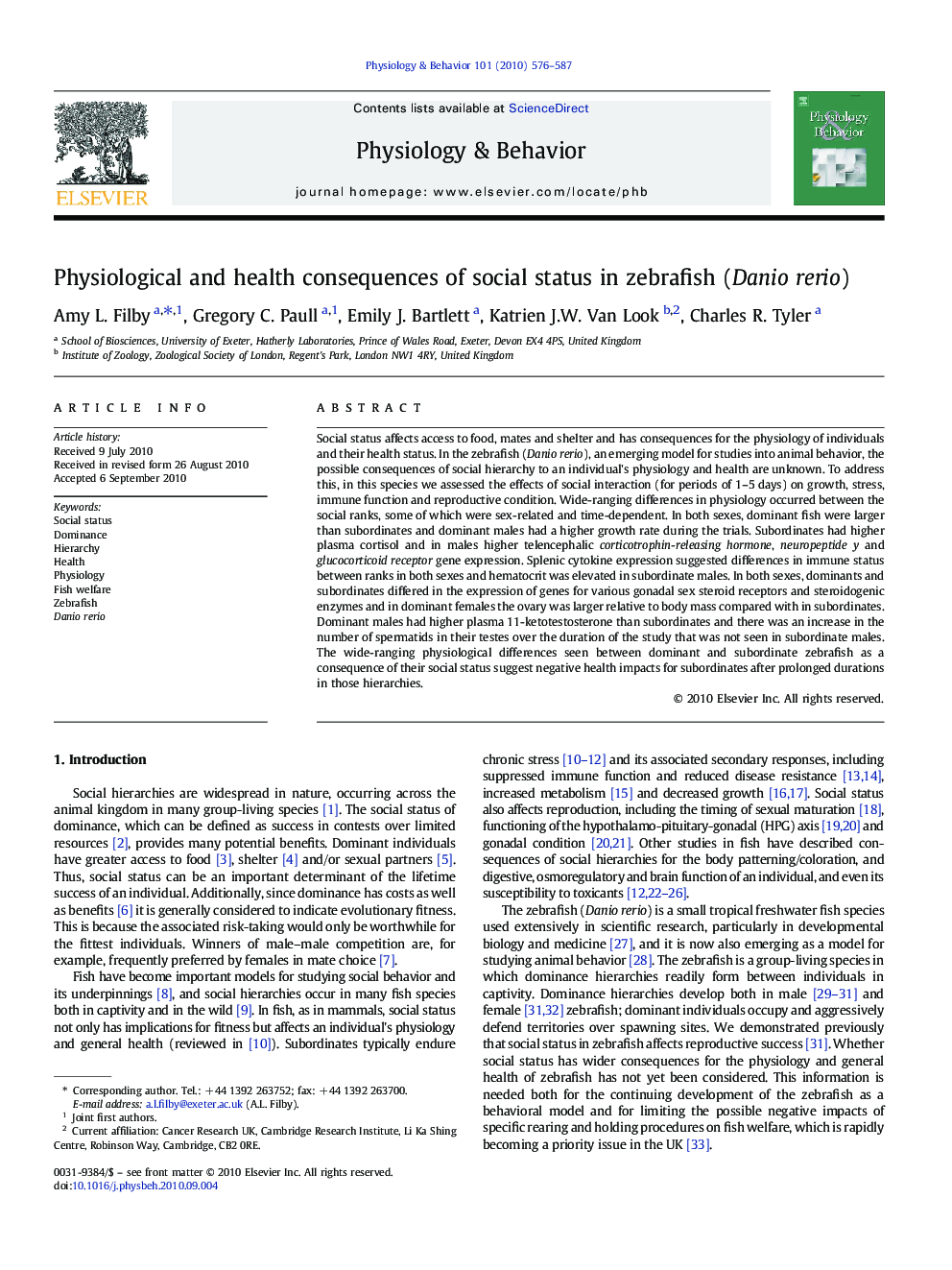| کد مقاله | کد نشریه | سال انتشار | مقاله انگلیسی | نسخه تمام متن |
|---|---|---|---|---|
| 2844795 | 1166365 | 2010 | 12 صفحه PDF | دانلود رایگان |

Social status affects access to food, mates and shelter and has consequences for the physiology of individuals and their health status. In the zebrafish (Danio rerio), an emerging model for studies into animal behavior, the possible consequences of social hierarchy to an individual's physiology and health are unknown. To address this, in this species we assessed the effects of social interaction (for periods of 1–5 days) on growth, stress, immune function and reproductive condition. Wide-ranging differences in physiology occurred between the social ranks, some of which were sex-related and time-dependent. In both sexes, dominant fish were larger than subordinates and dominant males had a higher growth rate during the trials. Subordinates had higher plasma cortisol and in males higher telencephalic corticotrophin-releasing hormone, neuropeptide y and glucocorticoid receptor gene expression. Splenic cytokine expression suggested differences in immune status between ranks in both sexes and hematocrit was elevated in subordinate males. In both sexes, dominants and subordinates differed in the expression of genes for various gonadal sex steroid receptors and steroidogenic enzymes and in dominant females the ovary was larger relative to body mass compared with in subordinates. Dominant males had higher plasma 11-ketotestosterone than subordinates and there was an increase in the number of spermatids in their testes over the duration of the study that was not seen in subordinate males. The wide-ranging physiological differences seen between dominant and subordinate zebrafish as a consequence of their social status suggest negative health impacts for subordinates after prolonged durations in those hierarchies.
Research Highlights
► Wide-ranging physiological differences occur between dominant and subordinate zebrafish.
► Social status affects growth, stress, immune status, and reproductive condition.
► The implications of social status vary with fish sex and time of interaction.
► The effects seen suggest negative health impacts for subordinate fish.
Journal: Physiology & Behavior - Volume 101, Issue 5, 2 December 2010, Pages 576–587